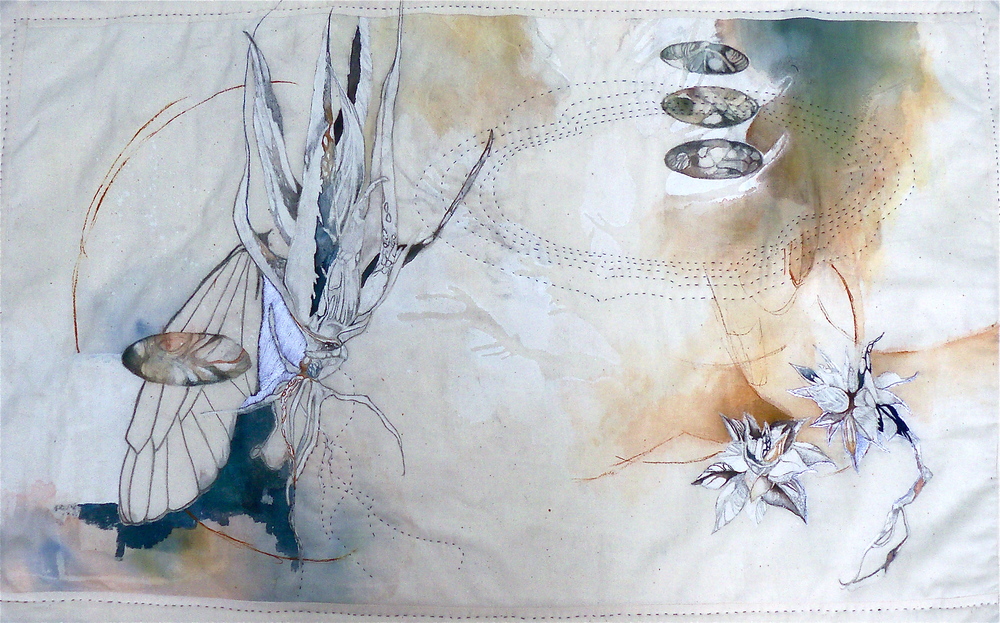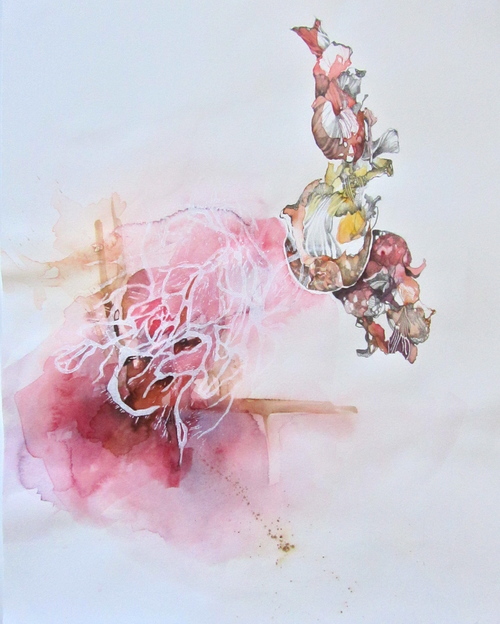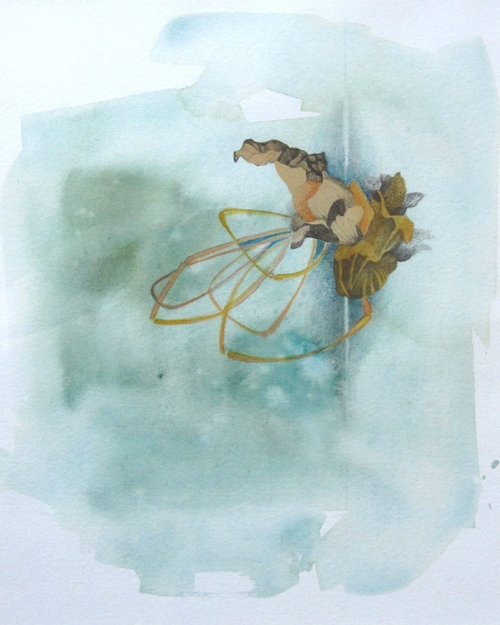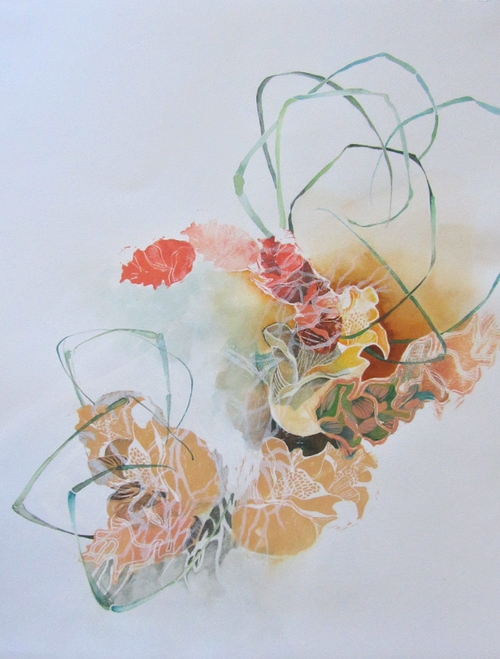Contact Us
Artist and mama of three littles, Skyler McGee, has a mantra: Show up, make marks. It means showing up for yourself, showing up for the work that makes your heart beat, and making marks. Sometimes they’re lovely, sometimes they just are. She opens up about how she balances motherhood with making art, and it’s pretty inspiring.
What does a typical day in your home look like?
The kids love to get up early. The rule is they have to wait until 6 AM to wake us up. And there they are – at 6 o’clock on the money – crawling into our bed. So, we get up early and make breakfast. My oldest is in kindergarten so we take her to school, then I just spend the morning with Cedar, my 2-year-old, cleaning or grocery shopping or baking. What I’ve found works best for me is when I put Cedar down for her nap – I’ll actually take a nap at the same time. Then we go get Hayden from school and spend the afternoon together making crafts and doing homework and breaking up fights – you know, all of that unglamorous, important parenting.
It’s actually not until after we put the kids down that I’ll do my art. I’ll pour myself a glass of wine and be in my studio until about 11 PM. I’m more of a night owl and it’s better for me to grab that nap in the middle of the day and stay up later at night. 11 o’clock comes and I still need take a shower, so I’m only getting like 6 hours of sleep a night, but that’s why I take my little afternoon power nap. This way, those hours in the studio are completely mine. I can turn off my mommy brain and I can turn on my artist brain. On a rare occasion I’ll look up and it’ll be like 1 or 2 o’clock in the morning and I’ll be like, “I really need to go to bed!” It’s amazing how much work I can get done when I can get fully immersed in it.
Do you ever bring your kids into your studio?
My kids are very familiar with my studio space. I love showing them what I’m working on and asking their opinions. When I have a show and I take them to an exhibition space, they remember me working on it in the studio. It’s really fun for them to see what I do at home translated into something out there in the world. To watch them make the connections that when I am in my studio, I am making something that’s going to be shared in the world … it’s special. They get really proud and they talk about when they’re going to have their work out in the world, too. To have them watch me be empowered, in turn empowers them. And that feels cool.
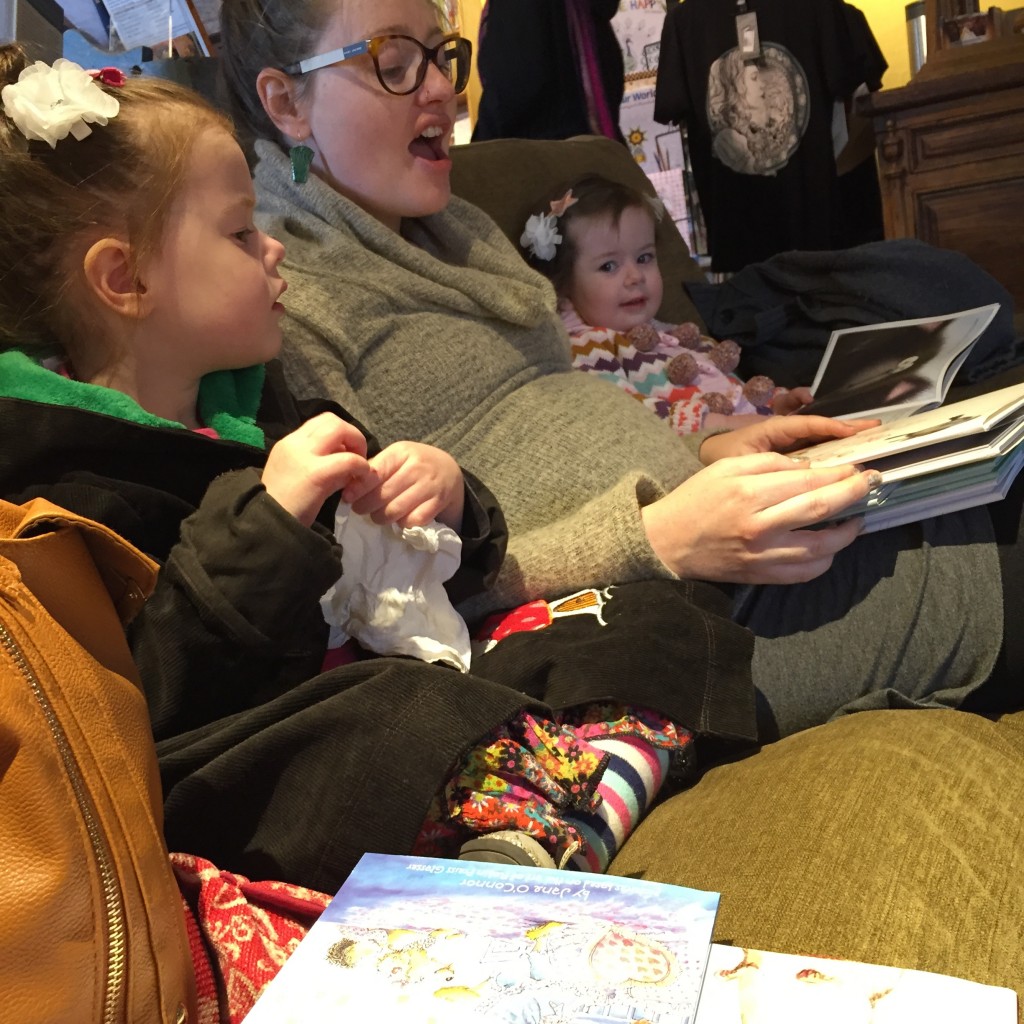
What is it about your studio time that breathes life into your soul?
When I’m working on my art, there’s this really special place of self-forgetfulness where I’m not thinking about myself at all. I’m not thinking about the laundry or my parenting or my friendships or if I’m doing okay, especially as a human being. I’m literally just making marks. And that feels liberating to be involved in this process that fuels me, but is also a lot bigger than me.
To be in a school of discipline that we’ve been in for thousands of years, expressing our humanity, and to be part of big, long line of showing up on time to express what it is for you to be human in this time and place – that feels really special.
You have your hashtag on Instagram that’s #showupmakemarks. What does that mean to you?
Yeah, that’s my phrase. I think in marriage, in parenting, in work and art – so much of it is literally showing up. Showing up for yourself. Showing up for your work. And then, making marks. This is my expectation of myself. Sometimes they are amazing and sometimes they’re not.
But there’s a repetition of showing up for yourself and making marks that is so empowering as a human being. To say “I was here and I matter, and I might not have anything important to say at this moment, but it doesn’t mean my presence is wasted.” I am here, showing up and making marks.
You can make marks in a million different ways: for me, it’s in art; for some people it’s in their community; for some people it’s in friendships; for some people it’s the pursuit of health; for some people it’s learning to cook.
But there’s something important, especially as a parent, in knowing that your identity is not consumed by taking care of these precious little ones. One day, it’s going to be their job to show up and make their own marks. And it’s my job to show up and make my own. And to teach them how do that. As much as I love my kids, they are not the mark I make in the world.
They are beautiful people and I get to help them live in the world because I want them to be mark makers, I want them to be change-makers, and they’re going to do that best watching me do that for myself. Watching me make my own mark.
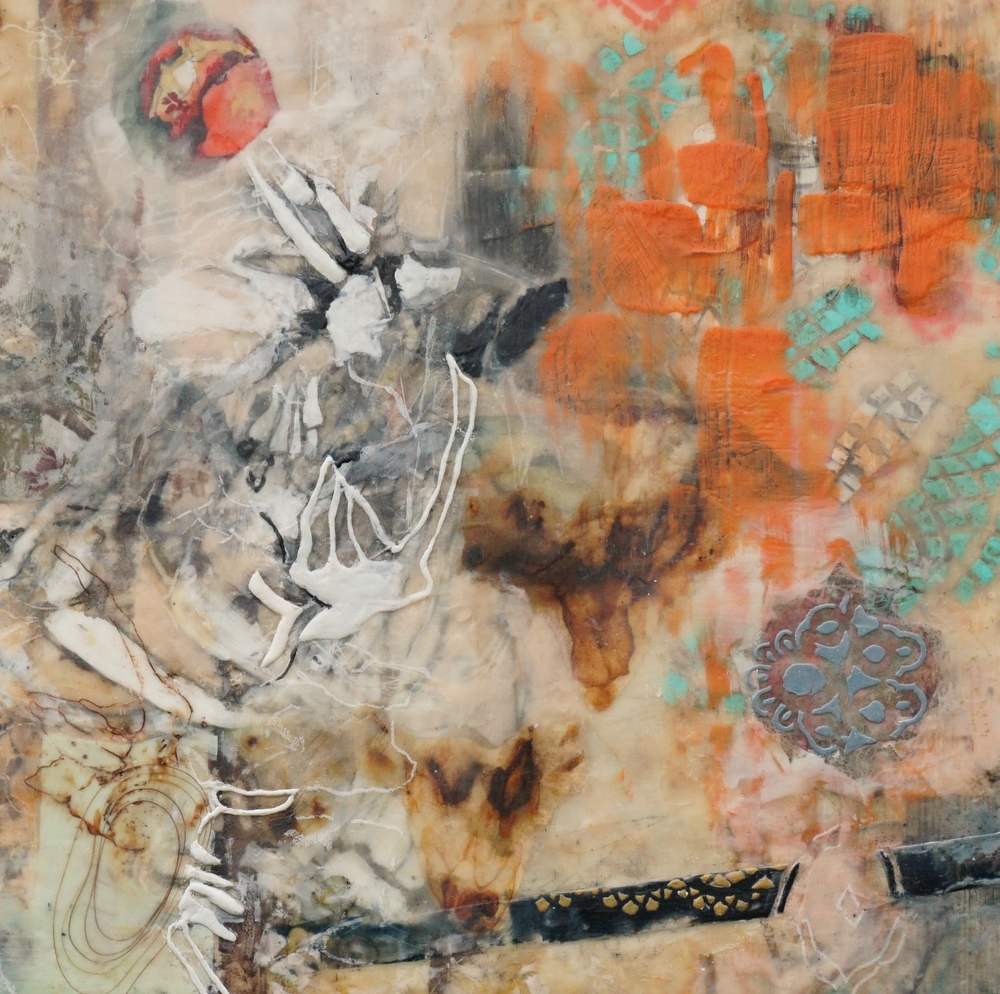
Was it difficult to come to this understanding of the importance of showing up and making marks?
It was difficult. I’m a compassionate person and for a long time I really thought my art was a kind of luxury. In college I kept a double-major of art and social work because I thought I needed to be doing something more community-oriented with my work. I seriously thought I needed to be out there changing the world outside of my art. And when I became a mother, that got translated to my kids – giving every ounce of who I am children. But eventually I started to realize that the world doesn’t need more people who want to change the world. The world needs more people who are living fully into themselves and into their story, and in love with life. And that changes the world.
Having small children who are completely dependent on me for every physical thing – it’s a short but very consuming time of life. But I’m starting to realize that if my kids are all that I gave to, I’m actually putting a whole lot of pressure on that poor little person to hold up the weight of my own contribution to this world with their little bodies. And I never wanted to do that to them. I never wanted them to become the vehicle through which I self-express. Because then both of our identities are in crisis. If they succeed, then both of us are elated. But it’s hard enough for a child to figure out who they are as a person without your mom riding on your coattails.
So I’ve learned that I needed to occupy a space in my world independent of anyone else but me. It didn’t have anything to do with my marriage; it had nothing to do with my children; it has nothing to do with me saving the world. It just has to do with me finding my voice. And in that, that my voice has gotten stronger over the years, I’m more secure and I feel more comfortable checking boundaries. It was super nerve-racking at first – trying to set up these boundaries with my babies. And now I think I have enough experience, and seen the fruit of that to realize that being away from the baby for two hours and making art is in service to everybody, including her.
And I want to teach them that their voice matters. I don’t want to teach them that their voice matters until they become parents and then they’ll lose themselves. That’s silly. It’s important that I teach them by showing them – they’re a priceless, powerful, essential part of a whole, but they are not the whole. They shouldn’t feel the pressure of being my whole world – they’re not.
How has having this time set aside for yourself affected your marriage?
It certainly requires a mutual commitment and understanding. My husband believes in my work and wants me to succeed, so he’s willing to carry the extra hours or move his schedule around if he needs to. So he has to be committed to that and make sacrifices for that.
Also, my husband is in a PhD program where he does a lot of writing, so he has his own relationship with creativity. And it’s a lot of give and take. If he has a big deadline on a paper coming up, there’s a time where weeks will go by and I don’t get in the studio, but I’m on board with him to living his dream. And he’s on board with me living mine. And so we kind of catch each other in those moments. He loves to see me thrive and vice versa.
Now, the trick is that even if he weren’t totally on-board with it, I’d do it anyway. Again, it’s for me. And I have agency in my life. Even if I didn’t make art, I don’t know, maybe I made rugs and he didn’t understand why I made rugs. Even if he didn’t get it, I would learn to carve out time for it – because no one’s going to respect your work if you don’t respect it first. And so, he’s my greatest champion and yet I need to not need him to like my work.
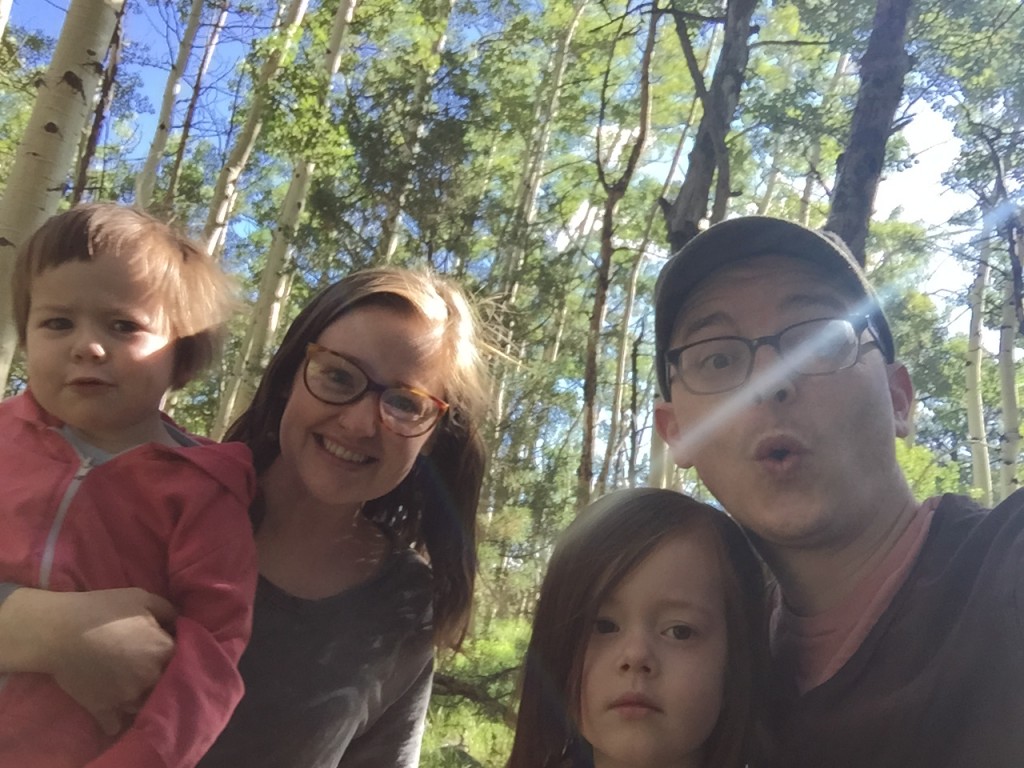
You say you paint to ‘locate yourself’. Could you explain that more?
It’s literal and figurative. For me, there is a physical component to making art: I have to be physically present and literally move my hand across the paper or across the painting. But there’s also a non-physical component I’m interested in – sometimes this looks like something familiar that you can’t quite put your finger on, or an animal you can picture touching with your hands, but is wild or mythical.
So much of my work is a conversation between the concrete – here I am in my studio, creating specific work, and in this house where I grow this literal garden – and the fluid, bigger-than-me-realm of what is not right in front of me. It’s this tension between what I can physically touch with my hands and all the stuff I keep in my head. It’s a dialogue between those spaces. It’s a way for me to make peace with not only what I can inhabit, but also what I can’t because both of these are worth exploring.
What is some practical advice you would give other moms who might be struggling to set aside time for themselves to do restful activities?
The first thing I would say is start now – don’t wait until you’re ready. Because there is going to be a million things to do between now and later. Whether it’s a creative practice or a spiritual practice or whatever kind of practice it is – start now and let it be clumsy, because that’s how most things get started.
The other thing I would say – and this is key – is you cannot wait until all of your ‘domestic’ duties are finished, to make your work. This will never happen. And so don’t clean the kitchen first. Don’t fold your laundry first. Don’t do those things first. If you do, they will take up your best brain space and then you’ll have nothing to give to your work, or rest, when you show up to it.
However, let’s say you leave all that other stuff undone, you show up for your work, you go and you work hard for two hours, and you’ve given it everything you have, you are kind of brain dead, you are kind of exhilarated. Forget the mundane tasks – give your life-giving activities first dibs. And then you can fold the laundry when you are tired or you can clean the kitchen when you want to zone out.
Make your “art” the main course of your life. And all of the other stuff – the laundry and all the cleaning – that will still happen.
I think a lot of moms who are in the early stages of motherhood struggle to find out how to embrace rest. What encouragement would you give a mom who’s like, “I don’t know what that looks like for me.”
Elizabeth Gilbert has written a great book recently called Big Magic that is about the relationship between creativity and the rest of your life. And her suggestion, which would be my suggestion, is to follow your curiosity. Because it’s a heavy weight to try to follow your passion when you’re not quite sure what your passion is. So rather than striving for the thing that you’re going to give to the world, find out what you’re curious about. What do you want to know more about? Do you want to try yoga? Do you want to try cooking? Do you want to join a community group or a book club? Or do you want to write? Just as kids find stuff they’re interested in by playing – give yourself permission to play. Give yourself permission to have false starts; to try things and hate them or try things and love them. But the important thing to do first is decide that your curiosity matters.
I think it can seem really daunting to look in the mirror and not know what your passion is.
There is no greater burden than feeling like you are supposed to know how to change the world in that moment and not have any idea how to do it. There’s already a lot of pressure on parents to do the parenting thing perfectly. So take the heavy hand off; take the pressure off and say “you know what? I matter.” And this space, this restful, playful, curious space is important to become the person I want to be.
If it’s hard, think about how you value your children, and how you want them to live in the world. You never want them to lose themselves so much in service to others that they don’t think they matter anymore. So teach them what it looks like to matter to yourself. They are watching you learn what it means to be a human being, and you get to be the first person who shows them what it looks like to matter to yourself; and to honor yourself.
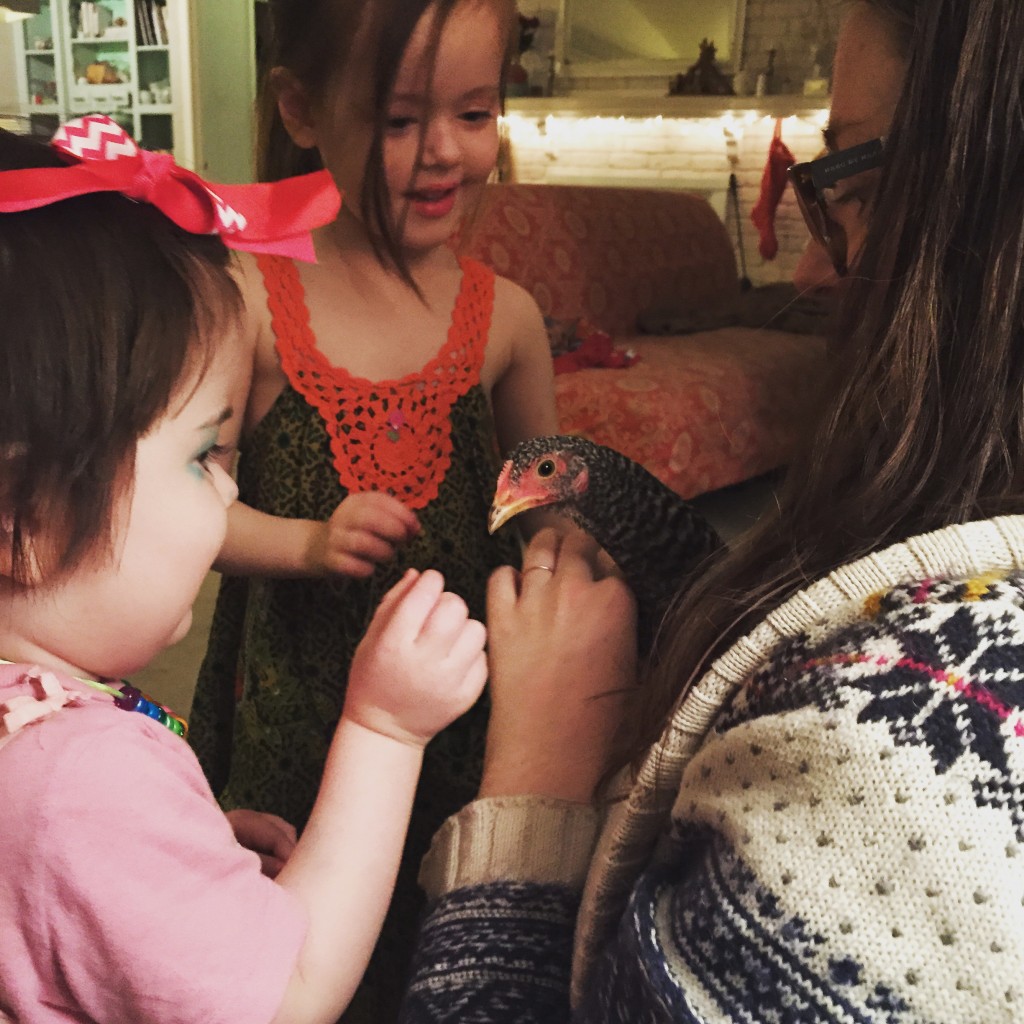
FIND SKYLER MCGEE
@skylermcgee
Emma Turnbull is the Marketing Strategist at MOPS International and a Colorado native. She is continually looking for Chapstick, Monday motivation and compelling ways to speak truth.
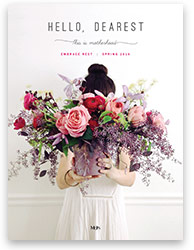
This article originally appeared in the Spring 2016 issue of Hello, Dearest. If you didn’t get a copy and would like your own, you can subscribe to get Hello, Dearest in your mailbox every season. If you subscribe, forward your receipt to magazines@mops.org and we’ll shoot a copy of the current issue in the mail to you for free … just because we like you.
